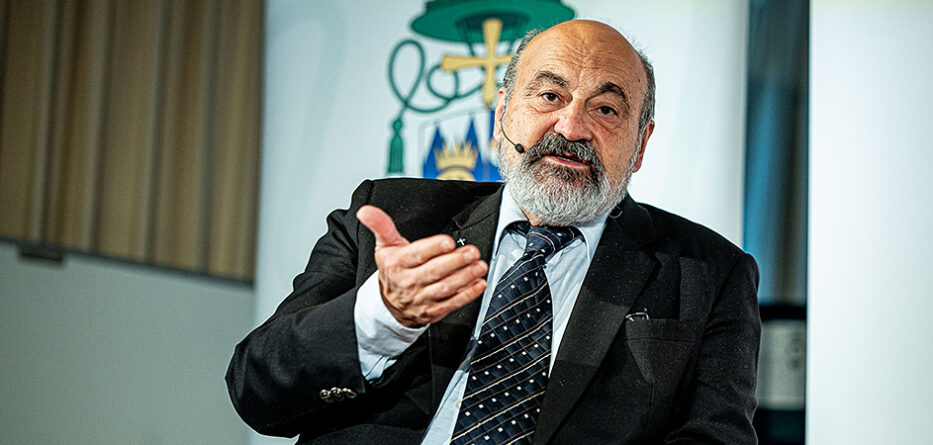How do we respond to the arch critics of the Bergoglio papacy when they have so clearly set their minds against Francis’s efforts to reform the church?
As evidenced by Demos 2, the forces of restoration are poised to do their mischief undermining the pope at every level. But they won’t succeed because their zealous adherence to the ancien regime runs counter to the thrust of history, the workings of the Holy Spirit, and just bloody good sense.
Nostalgia is not an antidote to spiritual and intellectual dislocation; it proffers comfort through the reclamation of a past encased in golden memories and the surety of certitude. And in the end, that rings false.
This simply won’t do as revealed in an illuminating piece of reportage/interview/commentary by papal biographer Austen Ivereigh in his article “Out of this darkness” published in The Tablet (London) on March 4 of this year.
Ostensibly about the life and work of the Czech priest and polymath Tomáš Halík, specifically in light of the recent English publication of his stunning Afternoon of Christianity: The Courage to Change, its arrival during the period between the two Synod on Synodality sessions is nothing short of providential. It is as much a tuba mirum as a profile.
An expert at the Synod, Ivereigh has provided an assessment of Halík’s new work that deftly situates Afternoon of Christianity within the context of the history-shaping work being done in Rome. Halík’s book is not unlike in impact the work of Bishop John Robinson in the early 1960s when he published Honest to God. It is a call to look at things afresh, to respond to the challenges of the time with imagination and verve rather than with fear and paralysis.
Halík is among other things a sociologist, psychotherapist, writer and memoirist but most importantly for our time a riveting theological thinker. He summons the church to an invigorating engagement with secularization and asserts that the very future of Christianity “depends primarily on the extent to which Christians relate to the spiritual seekers among the nones” (the growing number of people who are intentionally disaffiliated with institutional religion and who identify as such in national surveys and censuses).
Ivereigh writes:
“In his new book Halík shows how impoverished is the believing-non-believing distinction, how not just institutional Christianity but also dogmatic atheism is in crisis. Young people’s allergy to churches is more often the result not of unbelief, he points out, but something more like faith: a conviction that the Church has become alienated from its mission, captured by identitarian ideology, aloof from contemporary questions and concerns, and something like a corporation, interested only in itself. Halik sympathizes. When he hears certain sermons or bishops’ declarations, it strikes him ‘that we should not only investigate why people leave, but also where the ones who remain get their strength and patience’.”
The options are clear: the fury of the Demos 2 crowd or the empathetic pastorality of Halík. Although it is not scientific, whatever that quite means, but anecdotal, I asked one young, highly educated woman after reading the Ivereigh article why she chose to disengage from active membership in the Catholic Church and here is her response:
“While in uni I found my community elsewhere than the church—in theatre, in the writing world, with the people I met at school. I do believe in God, and I see the importance of religion in people’s lives but I don’t feel that need myself. Things might shift, I might find myself back there later in life, but for now, what I look for in church—community—I am finding elsewhere in ways that are more honest and true to who I am.”
These are precisely the kind of people the church is called to dialogue with, not ignore nor condemn.
Dr. Michael W. Higgins has been involved with investigating and expanding the Catholic Intellectual Tradition, particularly in Canada, for over forty years. Dr. Higgins is the Basilian Distinguished Fellow of Contemporary Catholic Thought at the University of St. Michael’s College in Toronto.
With thanks to Pontifex Minimus.
Pontifex Minimus is written on the ancestral territories of the Haudenosaunee, Anishinabewaki, Attiwonderonk and Mississaugas of the Credit First Nation peoples, who have stewarded these lands since time immemorial.








